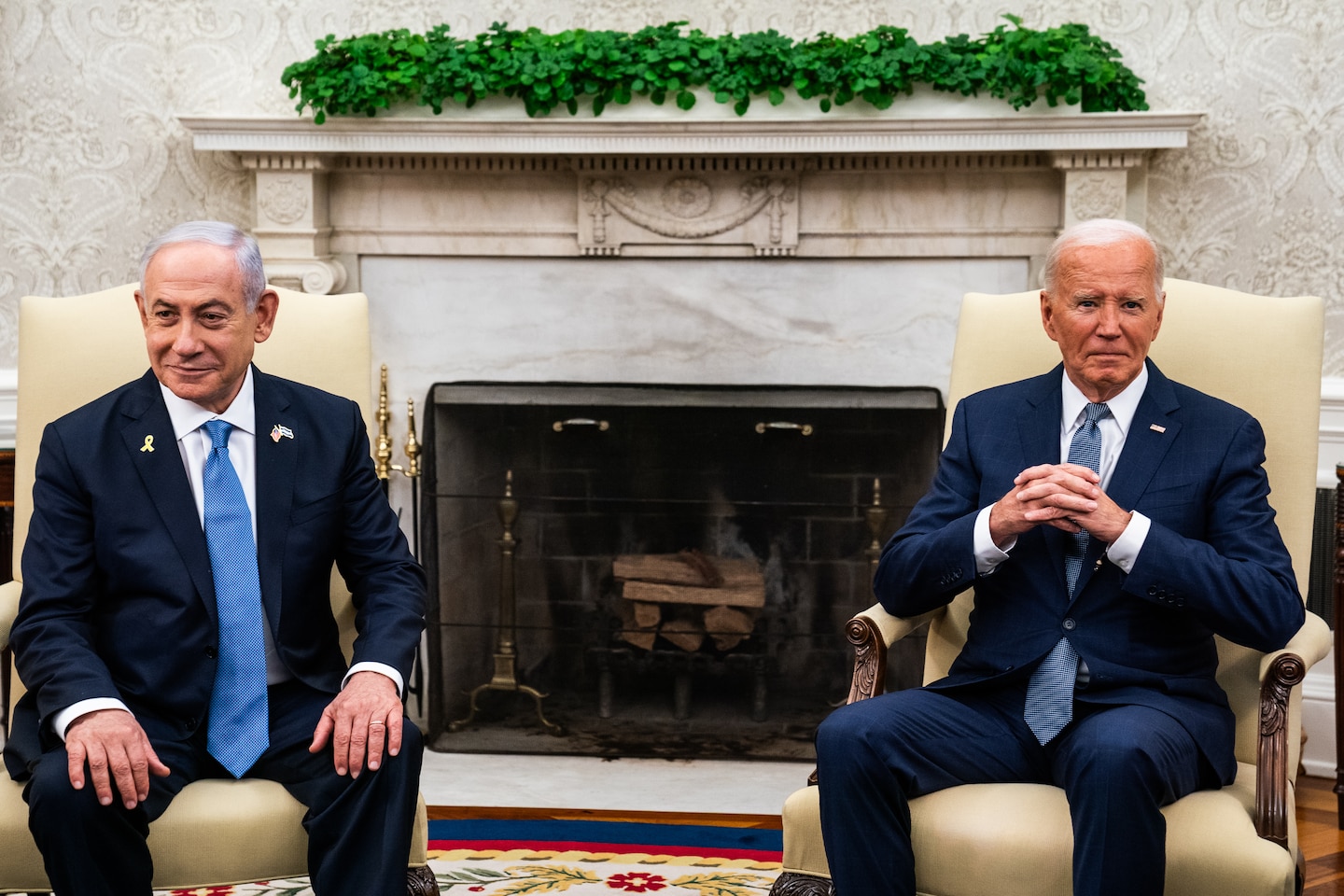President Biden met Thursday afternoon with Israeli Prime Minister Benjamin Netanyahu, as U.S. leaders say they are in the final stages of closing a deal that will pause the fighting in Gaza and release hostages.
Biden, who announced this weekend he would drop out of the presidential race, has signaled ending the war in Gaza remains a top priority in his final months in office. He has repeatedly said a cease-fire deal was imminent, even though the U.S. and other negotiating partners have been frustrated for months by the lack of an agreement.
“There’s still some gaps that remain,” John Kirby, a White House spokesman, told reporters on Thursday as the meeting was ongoing. “And we’re going to be talking to the prime minister today about closing those gaps.”
The first phase would include a six-week pause in fighting and the release of some hostages. The second phase of the deal would continue a cessation of hostilities while Hamas and Israel negotiate a permanent cease-fire, determining the withdrawing of Israeli forces from Gaza.
“From a proud Jewish Zionist to a proud Irish American Zionist, I want to thank you for 50 years of public service and 50 years of support for the state of Israel,” Netanyahu said to Biden at the start of their meeting.
Biden’s meeting on Thursday was his first face-to-face encounter with Netanyahu since the president traveled to Israel in the days after the Oct. 7 attacks.
“I’m going to keep working to end the war in Gaza, bring home all the hostages, and bring peace and security to the Middle East and end this war,” Biden said Wednesday during his Oval Office address.
Biden tightly embraced Israel in the immediate aftermath of the Hamas attacks, but as Netanyahu has continued an all-out assault on Gaza, he has become more critical, calling on Israeli leaders to allow more aid into the territory, where nearly 2 million civilians are suffering from widespread starvation and a collapsed health-care system.
Kirby said the two leaders had a “healthy relationship,” though he did not know if the president had watched Netanyahu’s speech on Wednesday.
“And by healthy, I mean they’re not going to agree on everything.” Kirby said. “They haven’t, through the long political lives that both of them have enjoyed, always agreed on everything. They come from two different political traditions, but they know one another.”
Kirby said the cease-fire deal and release of hostages was the president’s top priority heading into the meeting, but that the leaders would also discuss ongoing security threats to Israel and “unacceptable” violence in the West Bank.
After their bilateral meeting in the Oval Office, the two leaders will meet with families of Americans held hostage by Hamas. By including the families, the White House is hoping to elevate their message that Netanyahu needs to stop making new demands and agree to the hostage cease-fire deal on the table, officials familiar with the matter said.
Netanyahu’s government is negotiating for the release of more than 100 Israeli hostages, though of that number, many are believed to be dead.
“Not bringing home the hostages will amount to a total failure,” Jon Polin, the father of American hostage Hersh Goldberg-Polin, told The Washington Post in an interview.
Polin reiterated that message to Netanyahu during a meeting with the Israeli prime minister earlier this week at the Watergate Hotel in Washington. Netanyahu’s message to the families then was that his government is moving nearer to a cease-fire and hostage-release deal, a message they said was unsatisfactory.
“He did say we’re getting closer. I have no idea if he thought that that would appease us but for most of us, it did not,” Polin said.
Since the start of the Gaza War, Netanyahu has come under criticism for putting his military objectives related to the total destruction of Hamas ahead of the urgency of securing the release of hostages.
Earlier this summer, the United States placed blame on Hamas for adding new demands to the deal, but that outlook shifted earlier this month when Netanyahu directed Mossad Chief David Barnea to place new demands that moved the goal posts, said diplomats who spoke on the condition of anonymity to discuss sensitive negotiations.
Under the new conditions, Israel would not agree to withdraw its forces from the Philadelphi Corridor along the Egyptian border, the diplomats said. Israel would also not allow unrestricted access for Gazans seeking to return to their homes in the north — insisting that its forces be permitted to establish checkpoints to monitor the movement of the displaced.
A senior administration official said on Wednesday that the United States was looking for both Israel and Hamas to move on certain things to conclude a deal, but he did not spell out the details.
The State Department has used much less confrontational language toward Israel when describing its negotiating position in the talks.
When asked about Israel’s negotiating position, State Department spokesman Matthew Miller said, “We have been engaged with them over the course of the past few weeks trying to bridge the final differences. And what they tell us and what they continue to show is that they are working to try to get a deal.”
This is a developing story. It will be updated.

